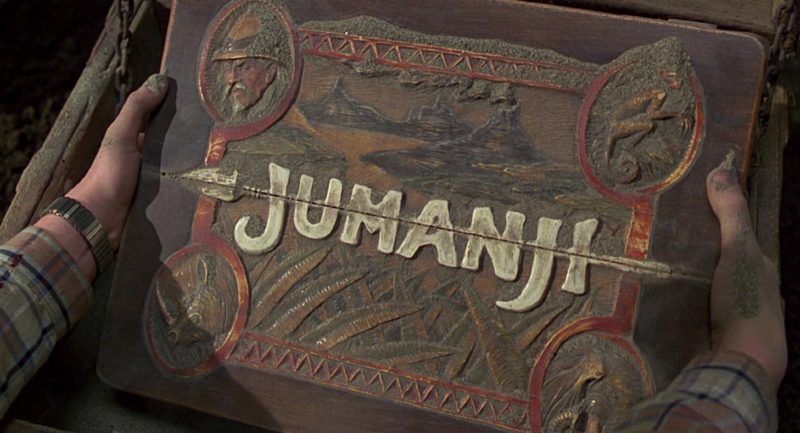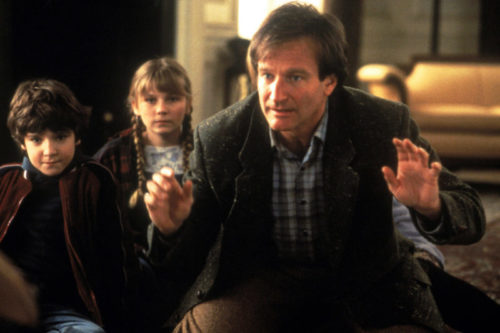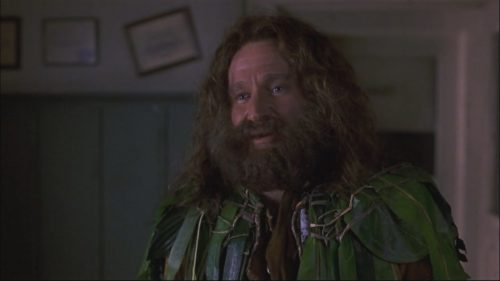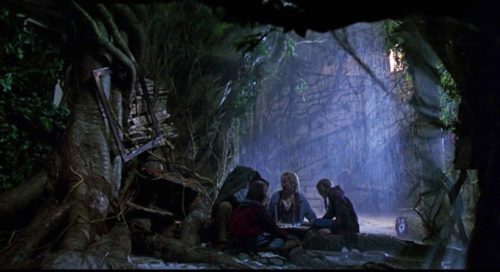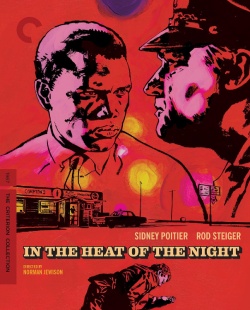The year is 1995. This is the year that films such as Se7en and The Usual Suspects are released, establishing Hollywood giants for years to come. Toy Story, the first ever fully computer generated feature film is released to widespread acclaim and box office success. Braveheart, Casino, Friday, Goldeneye, Apollo 13 and the Mighty Morphin Power Rangers battle for supremacy at the box office. As the year wraps up, Sony Pictures releases their last major tentpole for the year: Jumanji. Directed by Joe Johnston, the film is an adaptation of the 1981 Chris Van Allsburg picture book of the same name. It stars one of the most popular actors in the world, Robin Williams. While the film is financially successful, it receives middling to poor reviews from critics.
The recent release of the first trailer for Sony’s upcoming Jumanji: Welcome to the Jungle has brought to light that a large contingent of critics has nothing but disparaging words for the 1995 original. Look no further than Roger Ebert’s initial review for the film in which he describes it as a “gloomy special effects extravaganza” with “few redeeming factors.”
I’ve seen this view of the film parroted by many contemporary critics who did not gel with the movie when it was released. Now, in full disclosure, my first exposure to Jumanji was at a young age when I was the prime demographic for it. I certainly have nostalgia for the film. However, I think there’s more to the story here than people give it credit for. For those of you who are unfamiliar, Jumanji follows the baroque fantasy of a sinister jungle world invading our own through a cursed board game. The first to encounter the game are Alan Parish (Robin Williams) and Sarah Whittle (Bonnie Hunt), who begin to play in 1969. That round ends tragically, with Alan being sucked into the world of the game and Sarah running for her life. Twenty-six years later, recently orphaned Peter (Jonathan Hyde) and Judy (Kirsten Dunst) resume playing and bring the adventure back to life.
The trauma of Alan and Sarah resonated with me: Alan a boy forced to grow up alone in a savage world, Sarah a girl who was ridiculed for her outlandish stories of the boy who got lost in a board game. When these characters emerge as adults, they are fundamentally damaged people.
The pathos of the adult characters still affected me during a recent re-watch of the film. The scene that stands out the most is when Alan goes to visit his father’s shoe factory, now abandoned and inhabited by local homeless men. Alan was forced to grow up without his parents, but his parents were also forced to move on without him. Alan is told that his father never stopped looking for him. When he visits the grave where his parents are buried, you can see the helplessness in Williams’ eyes.
You won’t see any talk of the film’s themes in the critical discourse, especially with the shiny new sequel set to hit theaters. When I think of Jumanji, the special effects and set pieces aren’t the first thing I think of. I remember the emotional story, the atmosphere and the relationships between the characters. So, why didn’t this movie receive the same adoration from critics as it did with my generation of movie-goers?
One explanation is that it hit during an early wave of CGI backlash. Two years previous, Jurassic Park was released and completely changed how computer generated effects would integrate in modern blockbusters. During this transition, films such as Casper, The Mask and Stargate began incorporating these effects with mixed results. Jumanji’s effects are much better than people give them credit for, but it is true that they haven’t aged as well as something like the T-Rex in Jurassic Park. Jumanji hit screens at an awkward period where effects were beginning to catch up to the imagination of filmmakers, but wasn’t quite there yet.
Nevertheless, what holds Jumanji together as a film are the atmosphere and characters. This is not an action comedy like some critics were expecting: it’s a dark children’s fantasy. It has more in common with “The Chronicles of Narnia” and Edgar Eager’s “Half Magic” books than it does Jurassic Park. The movie is about the unknowable mysteries of what lies beyond childhood and the traumas therein. The children in the story are survivors of traumas – whether they be the loss of a parent, being an outcast from society or essentially being abducted (albeit by means of a haunted board game). The makeshift family dynamic of the group is unbalanced because these Alan and Sarah are stuck in arrested development. It may sound cliché, but the children may in fact be more grown up than the actual adults.
I have no thoughts on the upcoming sequel, since trailers are known to lie and I have no clue what tone they’re going for based on the footage I’ve seen. All I know is that to me, Jumanji is the sound of beating drums, the foreboding feeling of danger in a new house and the regrets we tally up as we grow older. Jumanji deserves your attention, but not just because of the special effects.

